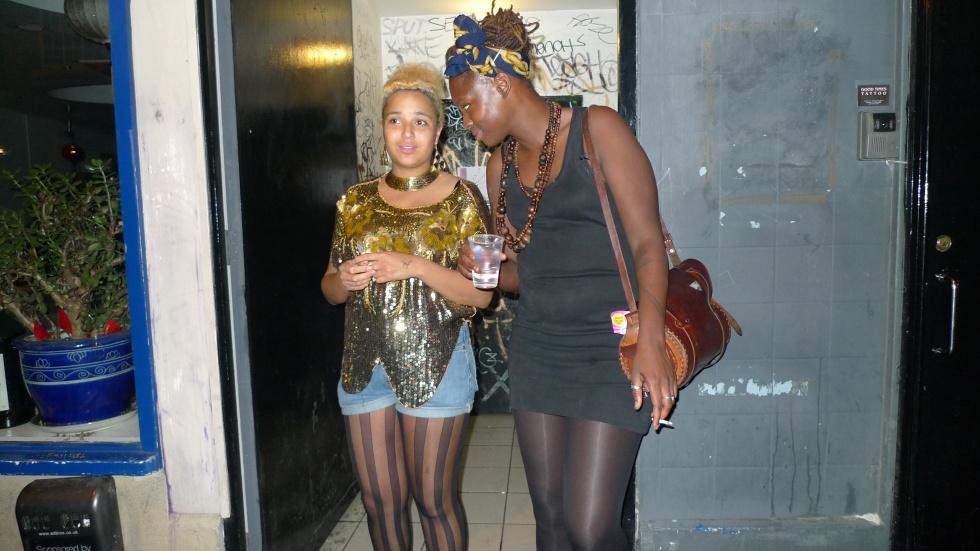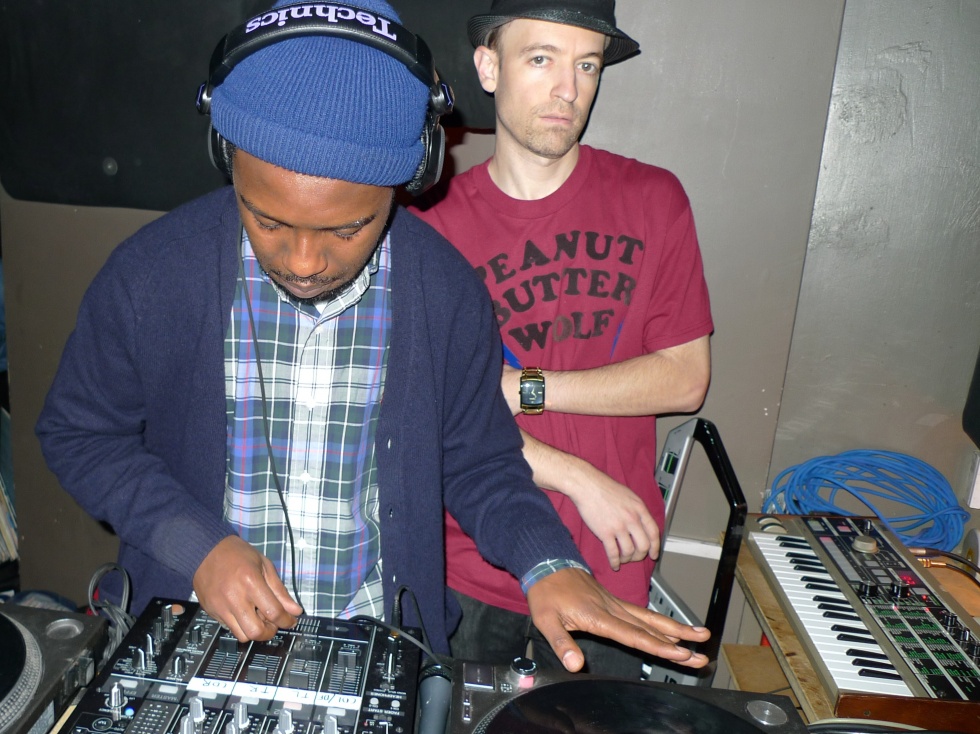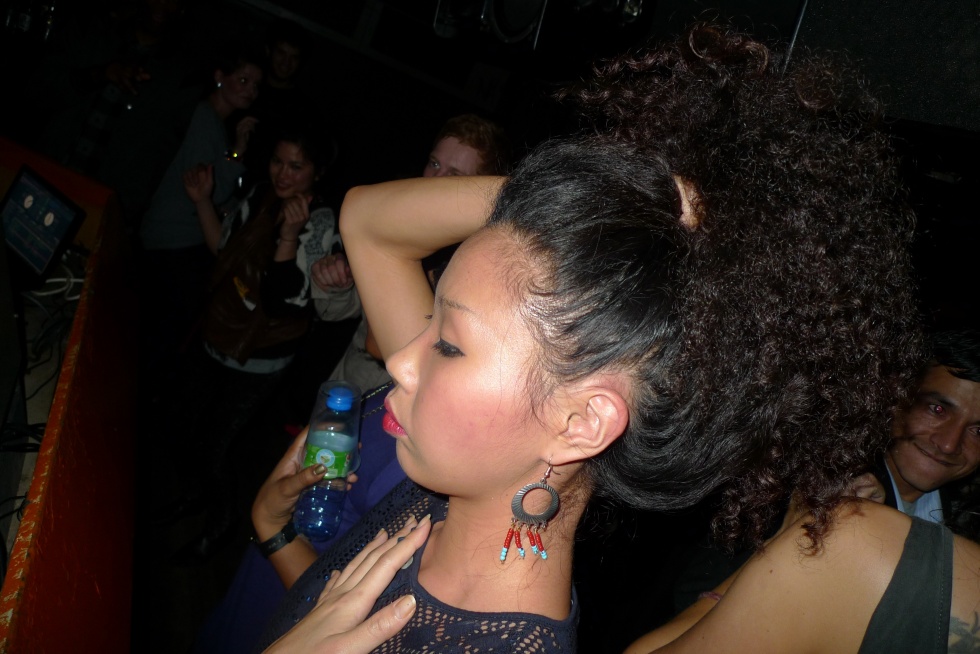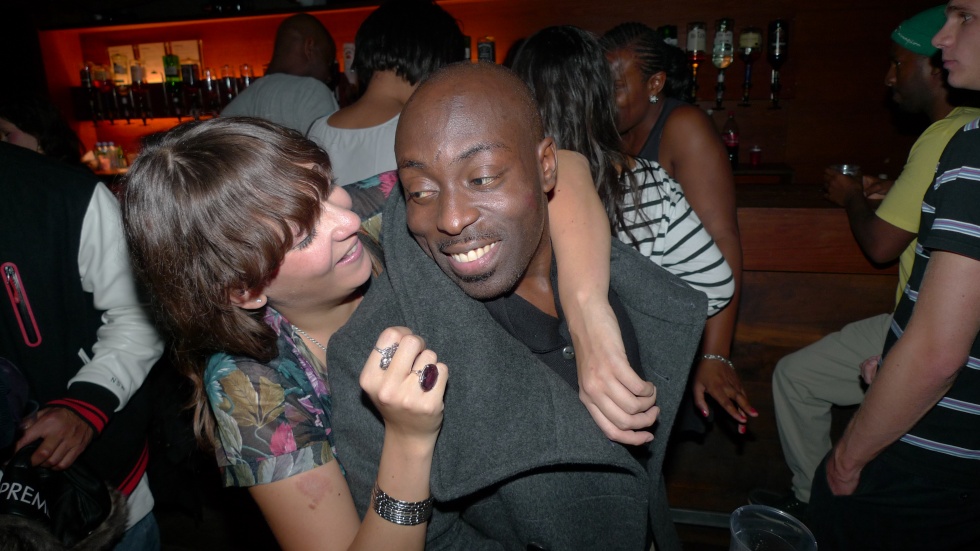To commemorate the passing of one of the most important spaces for underground music in living memory, here Melissa Bradshaw – herself a regular at FWD>> and many other Plastic People nights – takes a look at just how its magic worked.
When you’ve read this, head over to Part II of our appreciation, where you’ll find testimonials to the dark dancefloor joy and family feeling of PP, from DJs, dancers, bar staff and more – and, at the end of the feature, the playlist of the gods.
—-
It feels strange during a crisis of free speech to have been exploring the meaning of a dark space near the middle of London where public speech was the last of anyone’s concerns. But as anyone knows who spent any length of time there, the blackness on the dancefloor in Plastic People, over the years, was a place of real freedom. And the more property in London becomes unaffordable, the more buildings become just gambling chips instead of spaces for our lives to unfold in, the more the state of democracy feels spatial. Having spaces that feel like home and where we are comfortable to express ourselves matters more now than ever.
So it’s understandable that people might get a sense that the closure of Plastic People might be a symptom of unfreedom, of not being able to go where we want. “It’s a very fucking unfair society, and they’re taking our beautiful club away,” says Loefah – then gives an uncertain laugh. “This is what the closing of Plastic People does to people, it makes you just go wild; it’s like, do I believe what I said? A certain part of me does. Do I 100% believe it? No. But it’s a funny time in London…”
 PP mainstay Bernard Koudjo dismisses any theories about a conspiracy to close the club down, though. “Nonsense I would say. We have faced threats of closure throughout the club’s life, the worst being that of 2010, that we fought valiantly and successfully with the help of all those who love the club.” But I think that still leaves space for what Loefah says. That pressure was always there on this small, friendly space – while nobody was ever threatening to close down the Royal Bank of Scotland city banking HQ down the road in Bishopsgate for all the billions of pounds worth of misdeeds committed there.
PP mainstay Bernard Koudjo dismisses any theories about a conspiracy to close the club down, though. “Nonsense I would say. We have faced threats of closure throughout the club’s life, the worst being that of 2010, that we fought valiantly and successfully with the help of all those who love the club.” But I think that still leaves space for what Loefah says. That pressure was always there on this small, friendly space – while nobody was ever threatening to close down the Royal Bank of Scotland city banking HQ down the road in Bishopsgate for all the billions of pounds worth of misdeeds committed there.
Bernard’s description of his role at Plastic People is perhaps even more mysterious: “Those who know me would tell you that I’m undefinable as far as the history of the club is concerned.” Bernard met Ade Fakile, the owner of Plastic People, in 1994 (When Plastic People was a club on Oxford Street: it moved to Shoreditch in 2000), and says he worked for the club from that moment until the end of its life. “I’m just lucky; like hundreds of other nameless people – to whom I pay homage – to have been part of something that is bound to define the history of music and entertainment in London for some time.”
“It was like your mate’s place. And it was also a place that inspired you to take risks.”
If Bernard’s job description sounds mysterious, here is how he describes what was notable about Ade’s style of running things: “If I knew what it was, I would have tried to change it, and we wouldn’t have been who we have been for more than 20 years now”. Yet it was definitely that style of running things that contributed to the club’s defining influence on London. The darkness on Plastic’s dancefloor promoted sound above all other aesthetics. And it was a space of mystery and experimentation, as undetermined and conducive to intuition as its proprietors’ management style.
“A significant moment” that Charlie Dark remembers, for example, was François Kervorkian playing the sound of a rainstorm, followed by a Bill Laswell remix of a Bob Marley song – he thinks it was “Exodus”. Charlie put on a night there on Sundays, before Co-Op, with Acyde, Dobie and Alex Voices, and “basically lived in Plastic for several years of my life, from 1999, 2000, whenever they first moved to Shoreditch, to round about 2006.”
Acyde had told Charlie about this new place that had opened in Shoreditch and was owned by a Nigerian guy, “which I thought was quite amusing”. From the moment he went inside the Shoreditch venue, even though “the outside wasn’t super-ly inviting”, Charlie fell in love with the place. There was the sense of adventure, going down the stairs and past the bar to get to the dancefloor, where you would discover the black space where the real magic of the music could take place. Charlie, from a Ghanaian background himself, says he intuited that Ade’s West African roots had to do with there being a “slightly different cultural aesthetic as to what the space was about” – and Ade has indeed recently said he was influenced by the darkness in Nigerian clubs in setting the place up.
That space became about the freedom to try out new things. “The thing about other clubs was, they always made you feel fortunate to be in there. Plastic was the kind of place you could go and buy records and then call Ade up and be like, I wanna play this. It was like your mate’s place. And it was also a place that inspired you to take risks. There was always surprises at Plastic.”
 So in the darkness some of the most exciting music in twenty first century London happened, including the sometimes under-appreciated sound of broken beat. Charlie and Acyde took Dego to the space. Dego says, “I didn’t want to move to East London, I wasn’t into the idea of moving out there at all”. Since the closure of Metalheadz at The Blue Note, just over the way in Hoxton Square, they “knew what was going to happen in Shoreditch,” he winces. But then he went and heard the soundsystem; shortly after, the whole Co-Op crew moved there.
So in the darkness some of the most exciting music in twenty first century London happened, including the sometimes under-appreciated sound of broken beat. Charlie and Acyde took Dego to the space. Dego says, “I didn’t want to move to East London, I wasn’t into the idea of moving out there at all”. Since the closure of Metalheadz at The Blue Note, just over the way in Hoxton Square, they “knew what was going to happen in Shoreditch,” he winces. But then he went and heard the soundsystem; shortly after, the whole Co-Op crew moved there.
Other club’s soundsystems “didn’t compare”. Dego says that listening to his tunes on the Plastic People soundsystem altered the way he heard his music so that he would come out driven to experiment more. And the darkness opened his eyes. “You would hear details like how this came from the right and this came from the left. You would come out there and be like right I want to try this and this”. It was a pre social media time, too, when people still had to go out and discover new music. “It was definitely a word of mouth crowd and they were great, they were so live and so up for just getting into it. They used to be proper dancers coming down and everything, people who could really dance”. How the soundsystem was put together Dego does not fully know. But there was and still is nothing else like it.
“It was a great leveller, Plastic”
It was the Saturday night Balance, when Ade played himself, that Dego says “set the blueprint for what Plastic was about”. That was how you knew that you could play really experimental stuff there. (And indeed when did you last hear about a club owner that played at their own club?) Ade had a “record collection”, Charlie reminds me, his phrasing somehow emphasising the weight of the vinyl. “But when most people with lots of records go and become a DJ, Ade went and bought a club. And that was really impressive and really inspiring”. Dego says from that collection he learned “so much about music, I heard stuff that I would never otherwise have listened to”.
The black space was an eye opener in other ways. “There was no sense of them and us,” remembers Loefah, “with the club staff and the ravers, everyone was on the same thing. The people who worked behind the bar were pretty much ravers there and everyone was on the same vibe. Bar staff, door staff, ravers, MCs, DJs, everyone.” He also remembers that before meeting my mates there, “I thought people who had good educations and degrees didn’t like underground music, I thought they went to work and didn’t do this stuff. I found out I had some reverse snobbery. It was a great leveller, Plastic”.
The first time he played at Plastic People, at FWD>> in 2004, Loefah was so nervous he had to get his MC Sergeant Pokes to put the needle on his first record for him. He was playing off 10″ dubs, so there was a 2″ space on the slipmat, and he was so nervous he dropped the needle on the slipmat twice. He played a 2 hour set and then walked off in a kind of trance, forgetting the dubs he’d spent all week getting cut.
 Loefah had been to Plastic before, to a night called Isticks, run by Morgan Zarate, dBridge, Jay Scarlett and Steve Spacek. “It was mental and I loved it. Just hearing that vibe and being in that space, it was like space, bass, vocals, soul, darkness, all that shit was just like… wow.” He thinks the sense of space at Plastic contributed, in an indirect way, to the way he used space in his music. The soundsystem, he says, gave a confidence boost to emerging dubstep producers, because “it made your stuff sound amazing”. (Conversely, that meant their tunes could be not so well adapted to lesser quality soundsystems in other clubs, and to radio – which contributed to the length of time dubstep gestated as a purely underground sound, and perhaps therefore to its strength).
Loefah had been to Plastic before, to a night called Isticks, run by Morgan Zarate, dBridge, Jay Scarlett and Steve Spacek. “It was mental and I loved it. Just hearing that vibe and being in that space, it was like space, bass, vocals, soul, darkness, all that shit was just like… wow.” He thinks the sense of space at Plastic contributed, in an indirect way, to the way he used space in his music. The soundsystem, he says, gave a confidence boost to emerging dubstep producers, because “it made your stuff sound amazing”. (Conversely, that meant their tunes could be not so well adapted to lesser quality soundsystems in other clubs, and to radio – which contributed to the length of time dubstep gestated as a purely underground sound, and perhaps therefore to its strength).
In a sense, FWD>> contrasted with the other nights: it wasn’t a thing at which you could play whatever you wanted – it had to be the latest dubs. “that was the point of that night, though,” says Loefah. “But the very fact that we were playing weird music, from Croydon, that we’d written in our bedrooms and cut in Forest Hill onto dubplate, that was pretty much playing what we wanted. We didn’t want to go and play abstract vinyls that we’d found, we wanted to play beats that we’d written on our computer”.
“Everyone wasn’t checking each other out in that what-are-you-wearing way”
Plastic People was also amazing for its women – meaning that many of us discovered in it a place where we felt like we could turn up on our own and it would be all cool. “I would never have done that on my own normally”, Josey Rebelle says. Pre-Plastic, like Loefah, she says that tribalism in music was such that you’d only go out to one type of music. “That was probably the first place – well definitely the first place, and this is quite late in my raving career – when people were playing a whole range of stuff and it was absolutely fine.”
Plastic was also the place where Josey was able to break free from expectations as a DJ and play just the records that she loved. Having been a secretive bedroom DJ for years, she asked to play the warm up set at Nonsense in 2009. She’d been going to the night for a year. “I had some mashup record bag that was falling apart and my headphones were falling apart, and I was just a mess, but I remember going and playing all the music that I loved, that no-one was really playing. At that time everyone was playing a lot of hip hop and no-one was really playing that much deep house and techno. It was so beautiful for me to play all the stuff that I just loved so much”.
Josey became a Nonsense resident. She also ended up warming up for Theo Parrish on a night he normally played all himself. She’d rung up Bernard and begged him to let her warm up for Theo, not realising he didn’t normally have a warm up DJ. Theo rang her up and said, “I hear you want to warm up for me”? He was so impressed when he heard that she played all vinyl that he let her. And she played to a room full of die hard Theo fans who had their arms folded because she wasn’t Theo. They kept their arms folded, but afterwards some of them came and told her that was great.
Trying to pick out in a couple of thousand words a few things that capture why Plastic People was something like a true democracy, and why that dark space mattered, feels a little overwhelming. I’ve left out how the darkness meant that everyone wasn’t checking each other out in that what-are-you-wearing way. And the time when Dego played “This Ain’t Tom and Jerry” and everyone looked at each other and went, “he’s done it again”. And the time when everyone heard “Knowledge” by Toasty and it “blew everyone’s heads up”. And the time when Josey DJed in pitch black thinking it was the most liberating thing ever.
And the insane New Year’s Eve party lineup, with Pharaoh Sanders, Questlove, Madlib, Peanut Butter Wolf, ESG, Rhythm and Sound, St Etienne, Theo Parrish, Adrian Sherwood, Little Roy, Earl Gateshead, that “only Ade would be mad enough to even attempt to do”. And what it did for the grime scene by accepting it simply as just another London vibration. And how the bouncers would come down to clear the club and end up telling the DJ “that couldn’t be the last tune”. And all of that’s just from the few hours of interviews I’ve recorded over the past week. It accounts for a smidgeon of what went on in that darkness. I have too many memories myself. There ARE too many memories to be contained anywhere.
Some people think that London’s club scene will bounce back, some people think it’s doomed – pretty much everyone agrees we took Plastic People for granted, in the end. But either way, the closure of Plastic People will test this city’s will to freedom of musical and social expression. Let’s try and do those memories justice.
